Nick Albin, aka Chewy
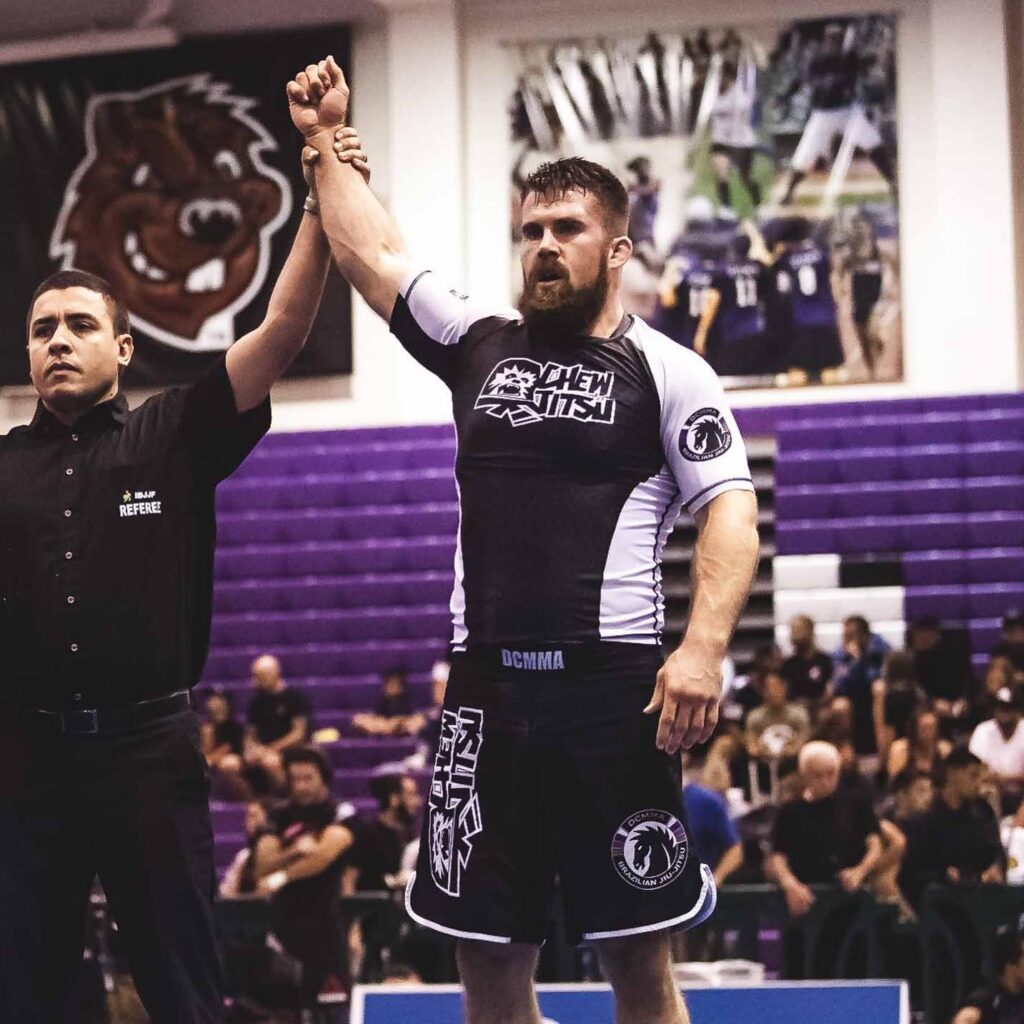
Story by Evelyn Sutton. Photos submitted by Nick Albin
“Sometimes I watch the women’s class at my gym and I think to myself, “I can’t believe I’m watching someone’s mom try to choke another person”, it takes me back to when I was a kid and I never imagined seeing someone’s mom fighting like that.”
During a visit to Jiujiteira Magazine headquarters for a seminar in Florida, we had the opportunity to sit down with Nick Albin, known in the Brazilian Jiu-Jitsu community as “Chewy”, and his lovely girlfriend Jessica, for an interview. A YouTube phenomenon, Nick is the creator of ChewJitsu, a channel that offers practical advice and insight into everything relevant to the world of BJJ. On his channel, Chewy takes the time to answer viewers questions and share his personal experiences both as a competitor and professor who travels all over the country teaching high-demand seminars. Chewy is a Brazilian Jiu-Jitsu black belt, and the owner/head instructor at Derby City Mixed Martial Arts in Louisville, KY. Chewy started training in 2003, receiving his black belt from Renato Tavares in 2011.
With almost 260K subscribers on YouTube and 75K followers on Instagram, Chewy has got plenty of knowledge to share and solid advice when it comes to BJJ. We couldn’t pass on the opportunity to “chew” on a few interesting topics with him and get his perspective of the current panorama of women in Brazilian Jiu-Jitsu.
JM: What is your athletic background? How did you get started in Brazilian Jiu-Jitsu?
Chewy: I wrestled in high school and out of all the sports I was playing at the time, I loved wrestling the most. When I got into wrestling I was an overweight kid who got picked on and bullied a lot. Once I became a wrestler, I got in shape, gained more confidence, and learned how to stand up for myself — the bullying stopped. I started watching UFC around the same time. I remember watching the Gracies and some of the first guys in the sport fight, and I was inspired. I wanted to fight like that. Back then it was hard to find information on Brazilian Jiu-Jitsu but I found out about a purple belt who was training in the area, he had competed a bunch, and I started training with him. I fell in love with Jiu-Jitsu, committed to it and the rest is history.
JM: Were there girls in your high school wrestling team?
Chewy: I remember one girl on the team who was on the smallest weight class, 103lbs, she was actually really good and she was blind. At regionals, she went against my buddy, beat several of the guys and came in third, which was a huge accomplishment. Back then you almost didn’t see any female wrestlers. Nowadays, culture in general is more comfortable with accepting and encouraging women to become wrestlers and fighters. When I was growing up, that didn’t happen.
JM: On your YouTube channel, ChewJitsu, you offer great content, including topics tailored towards women such as your video “How To Roll with Women in BJJ (Don’t Be a Bully)” which gives guys tips on how to help create a safe training environment for ladies. Considering BJJ is still widely a male-dominated sport, what is your advice for the Jiujiteira who is the only female at her gym?
Chewy: I imagine being the only woman at a gym can be a difficult thing to tackle. I honestly don’t know that Brazilian Jiu-Jitsu will ever be at an even 50/50 split when it comes to how many women versus men practice this sport. I think it depends on the area. In larger metropolitan areas you might see more women training. When a woman comes into a gym for the first time, it can be a tough adjustment. Being that close to another human being, a complete stranger, is really odd for anyone and even more so if you’re the only woman at that gym. Being around a bunch of sweaty smelly guys, I imagine can be uncomfortable, but it can also be a great opportunity! There’s times in life when you are the front runner in a particular space, and that is your chance to help create something new for those who come after you. If you’re the only woman at your gym, enjoy it. Training with guys will make you a very tough lady and most likely pretty good at this stuff. If you continue to train, eventually other women will follow and you will be in a position where you can help them. At my gym, for example, we now have a much larger women’s program in part because of the women who came at the very beginning and were training with the guys. That was the case with one of my female coaches, Madison, who was literally the only woman on the mats when she started. Now more women have joined and Madison helps run the women’s program. She is someone they can look up to, an inspiration for them. If you are the only woman at your gym, you will inspire others to train and I think that is very rewarding.
JM: In your opinion, do you think women learn different than men?
Chewy: Everybody learns different, I don’t know that it’s a female/male thing. Physically smaller and larger body types are going to have different challenges and advantages in Jiu-Jitsu. If you are a bit smaller or you’re not able to be as physically dominant, for instance, you might learn better from someone who has a similar frame as you. I don’t think body type affects your ability to learn from anyone but I do think that you might connect with someone who has a similar frame, just because they will be able to show you how they make best use of their body type. I have several students who are much smaller than me, they still learn from me but they also connect with one of my smaller coaches because he knows what it’s like to be a smaller person in Jiu-Jitsu.
JM: You mentioned you have noticed more women training BJJ, do you believe there’s greater opportunities now for women in this sport?
Chewy: Yes, absolutely! I believe a big factor that has contributed to the growth and evolution of women’s Jiu-Jitsu is the fact that now there are more female athletes blazing the trail, and inspiring others. Young girls have women they can look up to on the mats, in the competition circuit and I support that movement. I believe women’s presence and importance in Brazilian Jiu-Jitsu is only going to continue to grow as more female athletes take leadership, which in turn will open up even more opportunities and recognition for women. Sometimes I watch the women’s class at my gym and I think to myself, “I can’t believe I’m watching someone’s mom try to choke another person”, it takes me back to when I was a kid and I never imagined seeing someone’s mom fighting like that. Jiu-Jitsu moms are cooking food in the kitchen one minute and the next they are like, “Dinner is ready! Bye guys, I’m off to BJJ practice.” It’s not something you thought about when you were growing up, your mom choking someone. It’s just a really neat thing to see happening.
JM: Considering Brazilian Jiu-Jitsu is a combat sport, what is your opinion on transgender athletes competing in women’s divisions? How do we approach this new reality to ensure everyone is safe and being treated fairly at the same time?
Chewy: This is a new situation in sports and it’s still developing. Personally, it doesn’t matter to me who you want to be and what gender you identify with. I support anyone being whomever they wish to be. But I think that when it comes to sports, particularly combat sports, we have a problem right now because we are not sure where to draw boundaries. There are biological factors in place, such as production of testosterone and muscle development that may give a biological born male an unfair, and perhaps, even dangerous advantage if that athlete goes against a biological born female. That is just one of the factors we need to consider. Ultimately, I think the decision is up to the ladies, it’s your division. I’m just a guy, I don’t think I should have a say in it. Women are the ones competing in women’s divisions and they should be the ones who decide. I believe we created female divisions due to the physiological differences between biological males and biological females, right? And if you’re going to allow biological males to compete in a biological female division then why even have separate divisions to begin with? But again, women can decide what they want.
JM: Many women seek out Brazilian Jiu-Jitsu as a form of self-defense. For some, it comes after being the victim of a traumatic event. Training can be difficult for these ladies and emotional triggers often come up during or after class. As a professor, what would be your advice on how to deal with this situation?
Chewy: I myself started training because of trauma. At 12 years old, I got jumped when I was walking home from school, I was beat up pretty badly by older kids who were 16-18 years old and they broke my nose. From that moment on, I was afraid to walk outside by myself. I initially got into wrestling because I wanted to learn self-defense. When I first started training, I had to deal with emotional triggers from that incident. When someone held me down, for instance, there was a lot of claustrophobia there, I would literally freak out. My recommendation to anyone who is dealing with a similar situation is to keep training and trust your training partners. Keep in mind that the fear of the thing is always worse than the actual thing. The more you do those things that scare you, the more power you get back to overcome the fear. For instance, if it’s mentally hard for you to roll, let your coach know, and just do one roll for a minute then take a break, understand that you can always stop at any point if you’re feeling overwhelmed. You’re in class to learn, not to be pushed past the edge if you’re not ready for that. Also, be patient with yourself, overcoming emotional triggers is a process that takes time. Now, if you feel you may have been suffering from deep psychological trauma, I would definitely recommend that alongside with training, you seek help from a mental health professional who can better guide you in your journey towards healing and empowerment.
JM: What are your thoughts on allegations of sexual abuse and violation of trust between coaches and female students in Brazilian Jiu-Jitsu? In your opinion, is there some kind of behavior we should watch out for?
Chewy: There’s a common misconception when it comes to higher ranks, we sort of assume if someone is a black belt, they must be a good person. A black belt is not a reflection of good character. How that person conducts themselves at the gym and in their daily lives is what reveals their true character, not what color belt they wear. Another common assumption is that if someone is older and holds some level of authority, they must be trustworthy. Just because someone has an advanced skill or has been involved in a sport for a long time doesn’t mean you should automatically trust them. You can definitely become a better person through the practice of martial arts, but it’s not by default a measurement of morality. You should treat them like any other human being, trust should be earned over time. I think a lot of it is common sense. As a professor, I would never take a minor on a competition trip by myself, that child’s parents would have to come along. And if I had a teenage daughter, I wouldn’t let her go by herself on a trip with any man, even if that man was her Jiu-Jitsu coach. If she’s traveling with a team of women and the coach, that would be different, yet in any case, her safety would be my first priority. We need to be willing to question those in positions of authority and look at them as human beings with qualities and flaws. The problem I see is that in many situations where there has been a violation of trust, there was also a worship mentality in place, that is something we need to watch out for and avoid.
JM: What is your recommendation for someone who is only interested in self-defense and not competing?
Chewy: Here’s the thing… I think it’s interesting when we talk about training only for self-defense. I’ve gone to self-defense seminars and everything is done in this nice, slow, controlled manner, the moves look cool and maybe you think you got something from it. However, if someone grabs you on the street, it’s not going to be nice or slow or controlled. It’s going to be chaotic. I think it’s a disservice thinking that you can somehow learn a technique at a self-defense seminar and you’re going to be able to use it efficiently in a dangerous situation. I’m sorry, but it’s not going to work. There is a built-in survival mechanism in us, the fight or freeze response, and without regular training, rolling and a conscious mental effort to overwrite it, that survival mechanism will take over. People who are not used to physical confrontation on a regular basis most likely will freeze if attacked. In addition to regular training, competitions are also extremely valuable especially for those who train for self-defense because it’s the closest you will get to experience a real-life attack. At a tournament, you’re not going against a criminal who is trying to hurt you but you are going against another human being who is 100% trying to win, grab you, muscle and submit you without hesitation. Simply put, nobody at your gym will train with you as hard as an opponent at a competition. The adrenaline simply isn’t there. The whole environment of a competition — the nervousness, the anxiety, the weeks leading up to it — contributes to building up an intensity that you won’t be able to tap into by just going to self-defense seminars. I don’t think anybody should be forced to compete, but I do recommend to at least give it at try, particularly if you train for self-defense. Also covering your basics such as learning different takedowns and some striking would be useful if you are serious about self-defense. When it comes to groundwork, I would focus on chokes from guard. If you pop someone’s arm out in a fight, doesn’t necessarily mean they are going to stop, that person could be high on drugs or have a high tolerance for pain, in that case chokes are better because you put them to sleep and it’s not much of a struggle since there’s no muscle around the arteries, you don’t have to be strong to execute a choke, you just have to know the technique properly, which only comes with regular and consistent training.
JM: For our Jiujiteiras who are constantly getting smashed by big guys in class what do you suggest they get really good at?
Chewy: It’s going to depend on the person’s body type but assuming you are not the largest or strongest person at your gym, most times, you’re going to be playing off your back, so practice a variety of guard positions from there and learn how to effectively retain your guard.

CHEWJITSU

Our printed magazine is full of extraordinary women with extraordinary stories, get your printed copy via mail today >


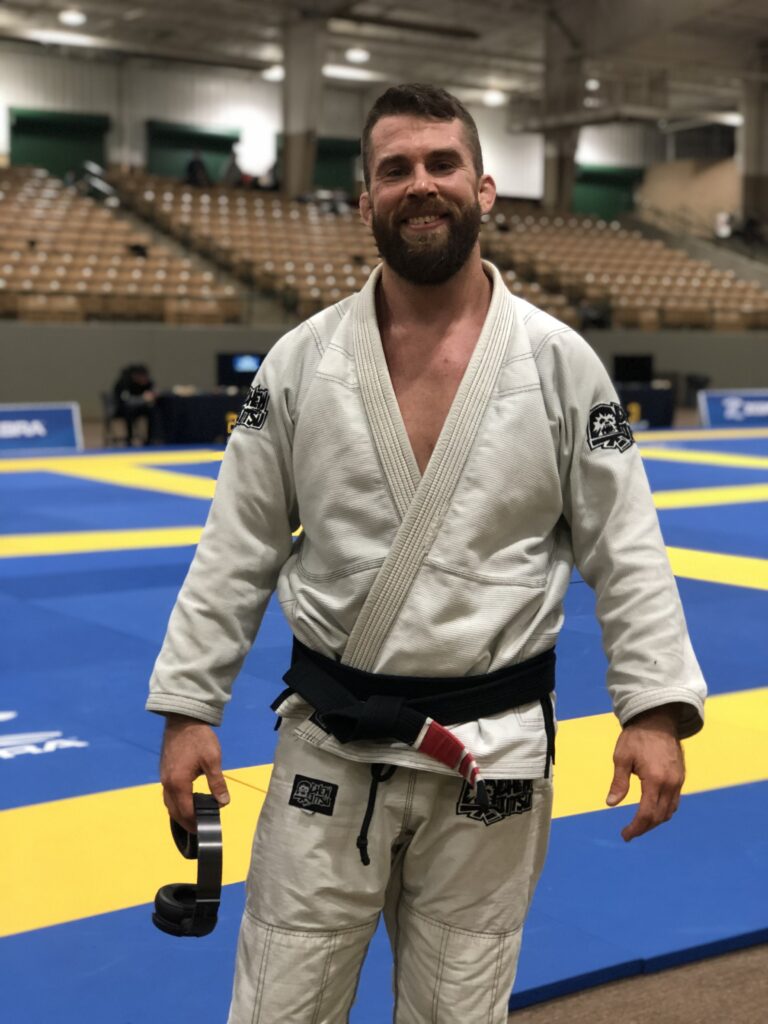
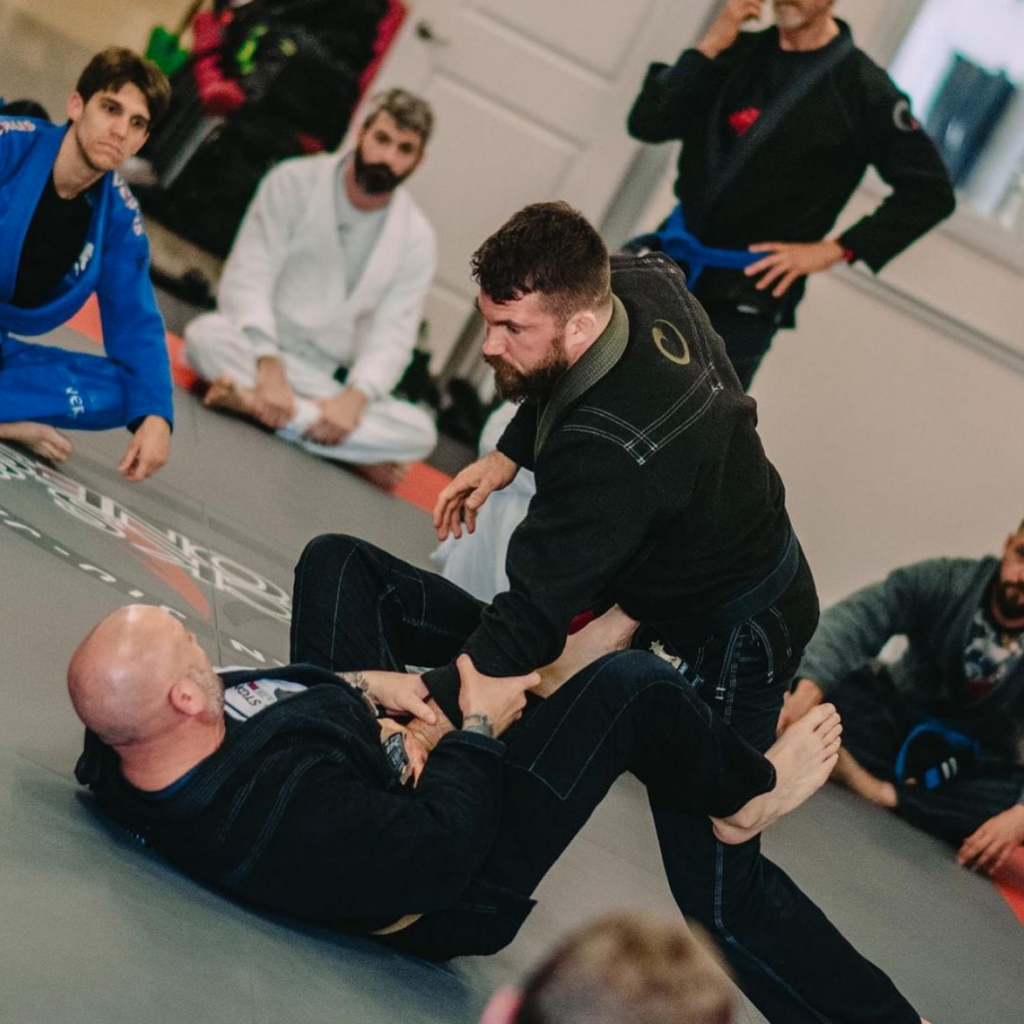
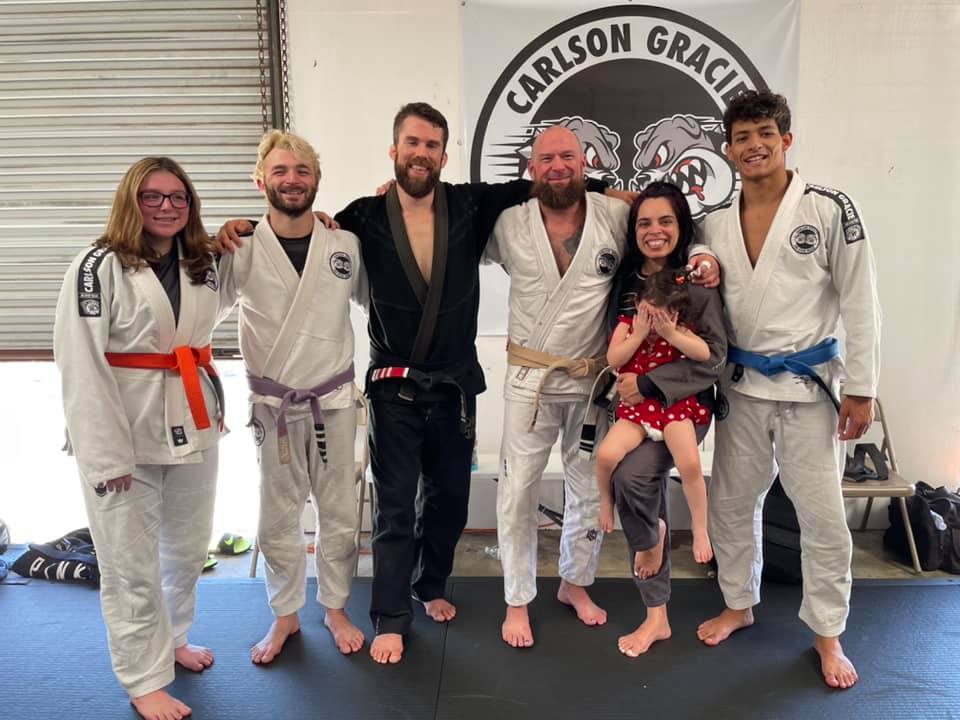
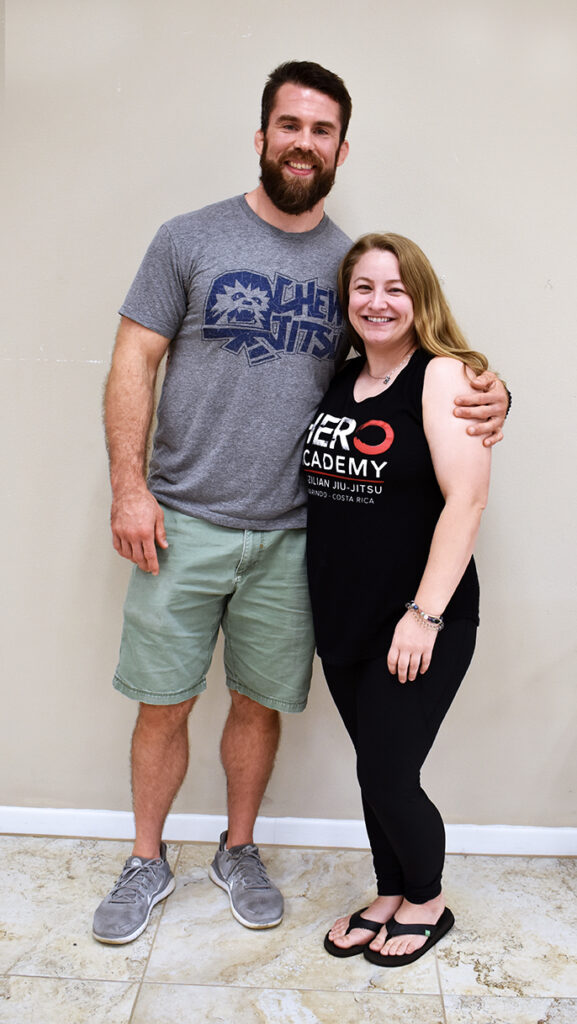
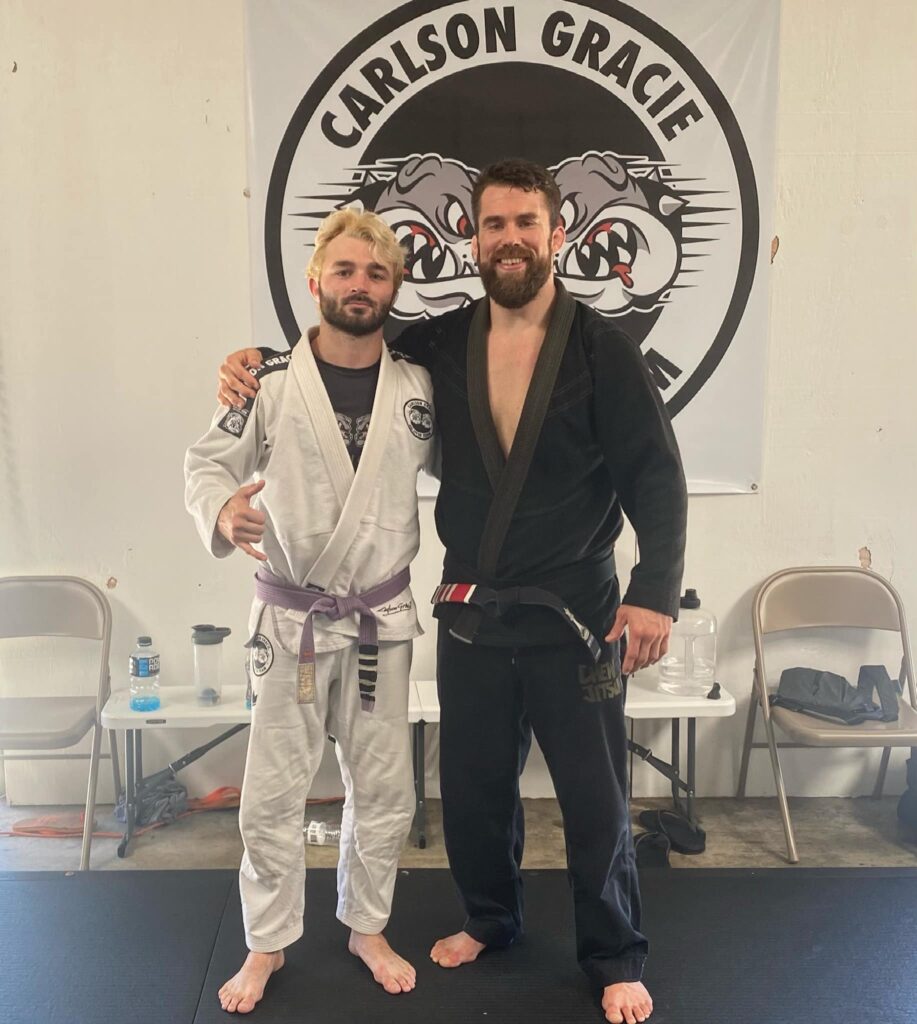
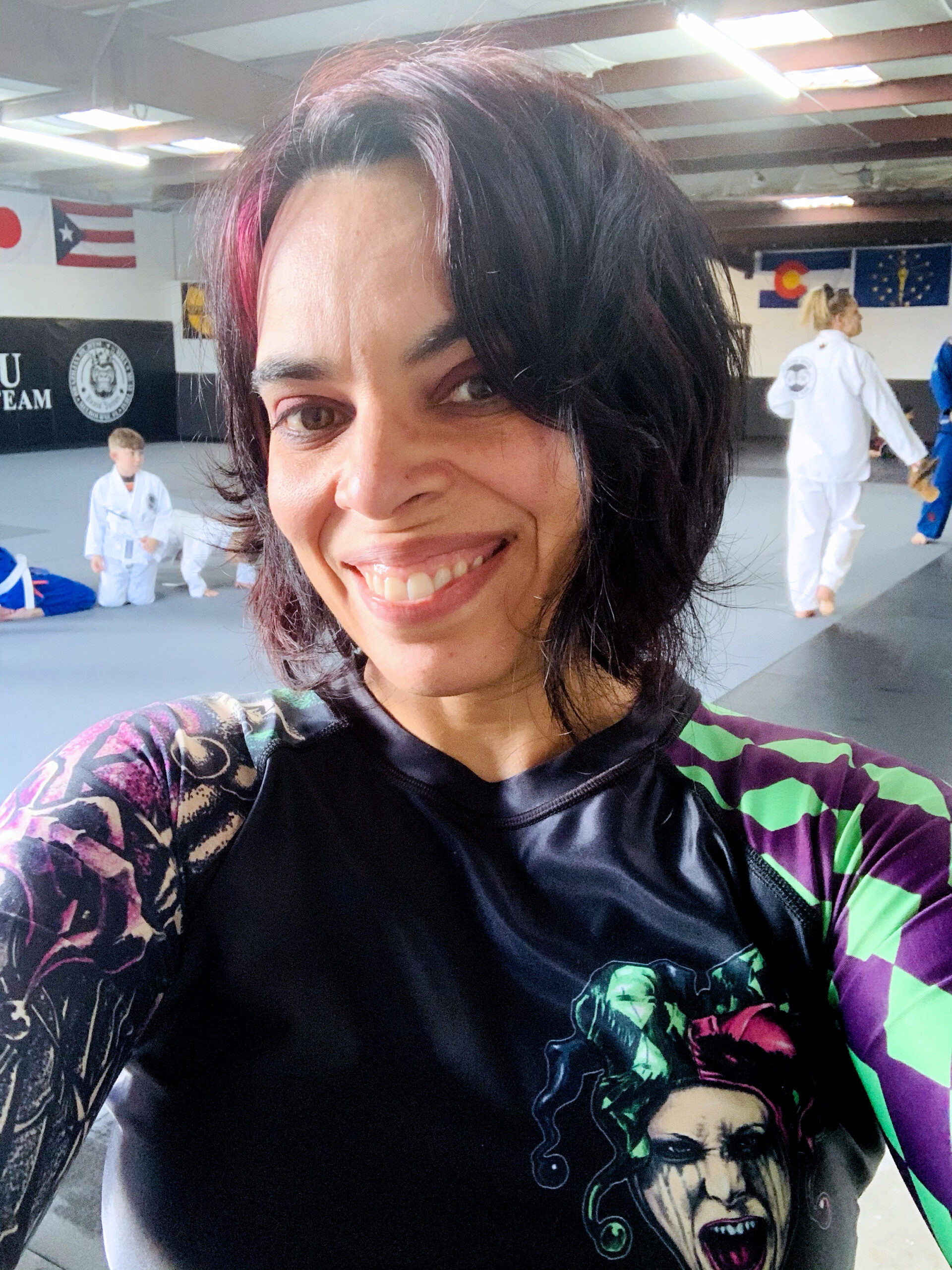
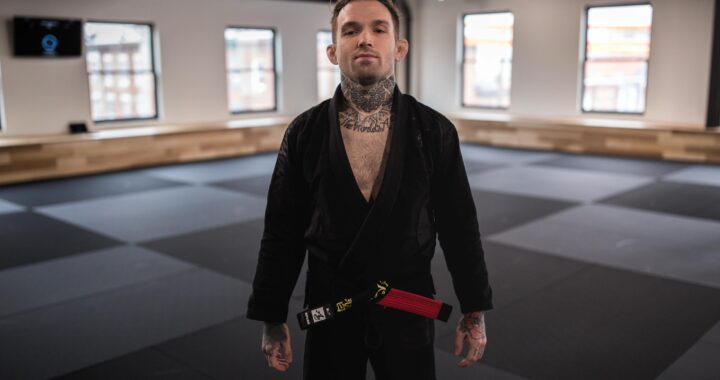 Kristian Woodmansee: The Logic of Fundamentals
Kristian Woodmansee: The Logic of Fundamentals 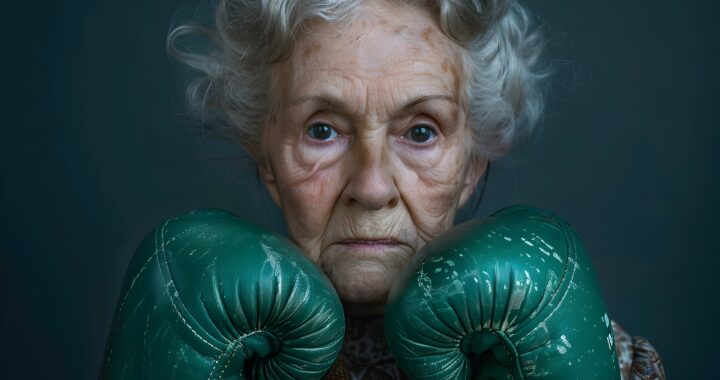 Father Time is Undefeated
Father Time is Undefeated 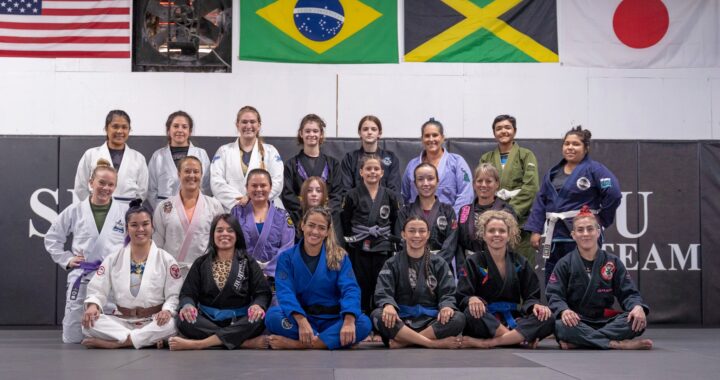 The Jiujiteira Sisterhood
The Jiujiteira Sisterhood 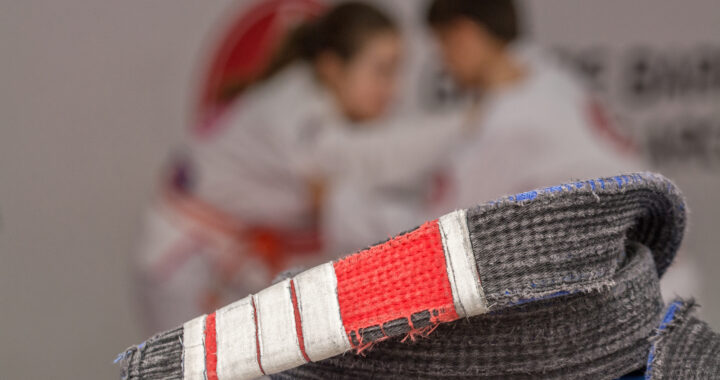 Advice in the Ranks- From White to Black
Advice in the Ranks- From White to Black  ADGS Rome: Jiujiteiras Shine in the Land of the Colosseum
ADGS Rome: Jiujiteiras Shine in the Land of the Colosseum